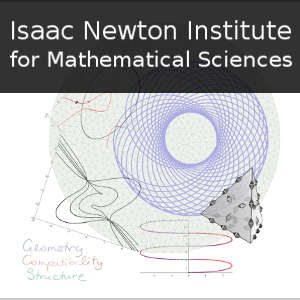Deep learning as optimal control problems and Riemannian discrete gradient descent.
Duration: 48 mins 13 secs
Share this media item:
Embed this media item:
Embed this media item:
About this item

| Description: |
Celledoni, E
Thursday 21st November 2019 - 15:05 to 15:45 |
|---|
| Created: | 2019-11-22 12:24 |
|---|---|
| Collection: | Geometry, compatibility and structure preservation in computational differential equations |
| Publisher: | Isaac Newton Institute |
| Copyright: | Celledoni, E |
| Language: | eng (English) |
| Distribution: |
World
|
| Explicit content: | No |
| Aspect Ratio: | 16:9 |
| Screencast: | No |
| Bumper: | UCS Default |
| Trailer: | UCS Default |
| Abstract: | We consider recent work where deep learning neural networks have been interpreted as discretisations of an optimal control problem subject to an ordinary differential equation constraint. We review the first order conditions for optimality, and the conditions ensuring optimality after discretisation. This leads to a class of algorithms for solving the discrete optimal control problem which guarantee that the corresponding discrete necessary conditions for optimality are fulfilled. The differential equation setting lends itself to learning additional parameters such as the time discretisation. We explore this extension alongside natural constraints (e.g. time steps lie in a simplex). We compare these deep learning algorithms numerically in terms of induced flow and generalisation ability. References - M Benning, E Celledoni, MJ Ehrhardt, B Owren, CB Schönlieb, Deep learning as optimal control problems: models and numerical methods, JCD. |
|---|---|
Available Formats
| Format | Quality | Bitrate | Size | |||
|---|---|---|---|---|---|---|
| MPEG-4 Video | 640x360 | 1.91 Mbits/sec | 691.38 MB | View | Download | |
| WebM | 640x360 | 934.28 kbits/sec | 330.05 MB | View | Download | |
| iPod Video | 480x270 | 490.75 kbits/sec | 173.31 MB | View | Download | |
| MP3 | 44100 Hz | 249.76 kbits/sec | 88.30 MB | Listen | Download | |
| Auto * | (Allows browser to choose a format it supports) | |||||

